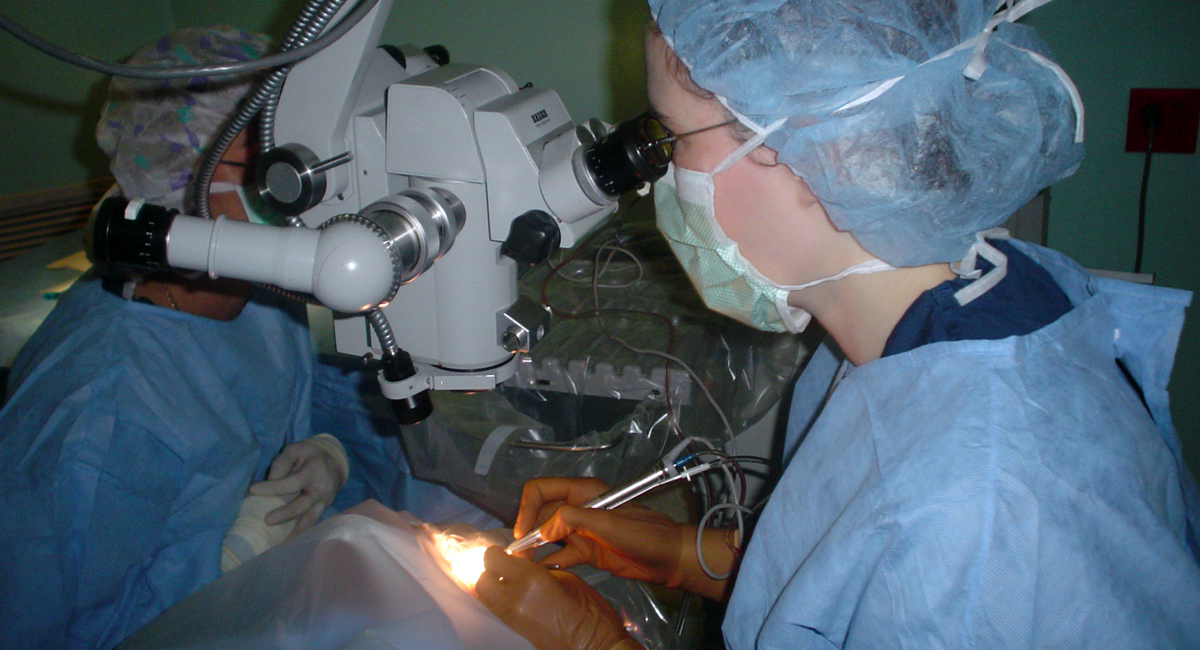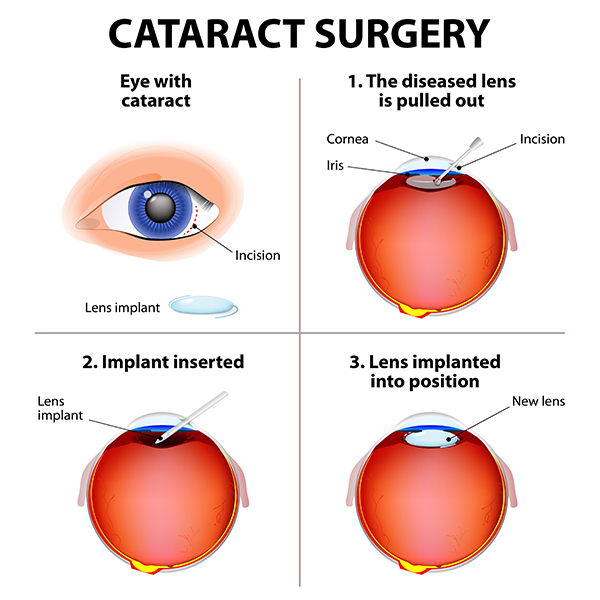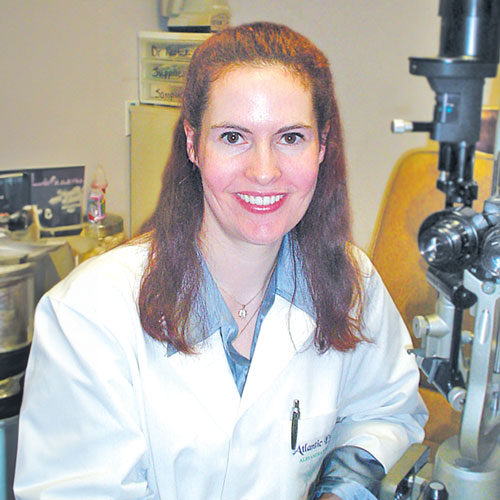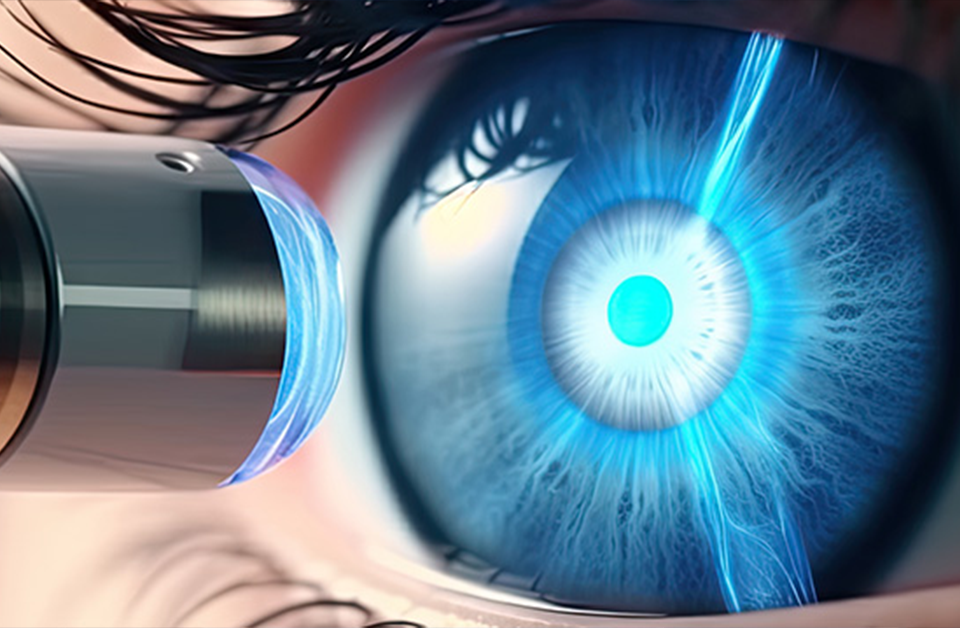

COURTESY PHOTO
Dr. Kostick performing cataract surgery.
The Department of Defense recently discovered that improper storage led to the deterioration beyond repair of nearly $2 billion worth of US Army ground weapons and equipment.
For the better part of the 20 years that he was in the Army, Anthony Teague’s job was to make sure that kind of thing didn’t happen to medical supplies and equipment. Considering his rise to the rank of major, it’s safe to say he did a pretty good job.
“It wasn’t the most interesting of jobs,” Anthony offers. “It was a matter of getting the right stuff in the right quantity to the right place at the right time. That was the most important thing.”
Anthony served his country from 1963 to 1984 and was deployed overseas, including to the Far East and Europe, on several occasions before retiring from the service.
Anthony, 81, now devotes a good deal of time to reading (“I prefer nonfiction because I often find it to be stranger than fiction.”), but a recent battle with cataracts affected his vision and made reading and other daily tasks difficult.
Cataracts are a clouding of the lens that typically forms from a breakdown of lens fibers or a clumping of proteins. As it was with Anthony, cataracts can develop slowly, over the course of several years. With most people, they eventually result in blurred vision, an increased sensitivity to light and a reduction in the vibrancy of colors.
“For me, the biggest issue was my distance vision,” Anthony says. “If I was driving, I couldn’t read the road signs until I got really close to them, and by then I might have already missed my turn or whatever.
“I was also having trouble with lights at night. I was seeing a lot of glare and halos around the lights, and that made it difficult to make things out, too. As for reading, I could still read, but I had to hold my reading material up close to my eyes. I couldn’t hold it at arm’s length anymore.”
Despite those issues, it wasn’t until he flunked a driver’s vision test that Anthony decided to do something about his cataracts. On the recommendation of his optometrist, he took the first step by visiting ophthalmologist Alexandra Kostick, MD, FACS, FRCSC, at Atlantic Eye Center.
Common Procedure


COURTESY GRAPHIC
Recognized as one of her field’s most accomplished surgeons, Dr. Kostick soon confirmed the presence of cataracts in both of Anthony’s eyes and recommended the only solution, which is the surgical removal of the affected lenses.
Cataract surgery is among the most common medical procedures. More than 4 million a year are done in the US alone. Scheduled on an outpatient basis, they are typically performed on one eye at a time, with a week or two between procedures.
Each procedure takes only a few minutes and starts with the breakup and removal of the clouded lens. That lens is then replaced with a synthetic intraocular lens, or IOL, that is designed to correct the patient’s refractive problems.
Prior to performing surgery, Dr. Kostick always spends time with her patients discussing their lifestyle, vision goals and eye health. That leads to a conversation regarding which of the various IOLs will help the patient achieve the best possible visual outcome following surgery.
IOLs are available in many focusing powers. Standard IOLs typically correct the patient’s distance vision, while multifocal IOLs can correct distance and near vision in much the same way as bifocal eyeglasses or contact lenses.
The most advanced IOL is a trifocal called the PanOptix®, which corrects distance, intermediate and near vision. The PanOptix has become Dr. Kostick’s “IOL of choice” for patients wanting a multifocal lens, but Anthony was not one of them.
“When Mr. Teague came to me, he was very nearsighted, and in discussing the various options regarding replacement lenses, he made it clear to me that he wanted to remain nearsighted,” Dr. Kostick reports. “And that is just fine.
“A lot of practices try to sell their patients on a premium or multifocal lens, but we don’t do that. We do what’s best for the patient. Sometimes that is a multifocal lens or a toric lens that corrects astigmatism, which is an irregular shape of the cornea that causes blurriness.
“But not all patients need or want that, and Mr. Teague was one of those patients. He was very happy with his vision the way it was. He didn’t mind wearing glasses for distance vision and was happy to stay that way following cataract surgery.
“So, in treating Mr. Teague, we fit him with a monofocal lens that got rid of the majority of his nearsightedness but kept his reading vision the way it was. And now, even though he still needs to wear glasses for driving and other daily activities, he’s a very, very happy camper.”
Give It to Me Straight
After having his cataracts removed, Anthony is now seeing better than he has in years at all distances. He is grateful for the recommendation to visit Dr. Kostick.
“What she did through the surgery was improve both my near vision and my distance vision so that my distance vision is now a lot better than it was before when I was wearing my glasses,” Anthony reveals.
-Anthony
“It was a bit of a tricky decision I had to make regarding the (replacement) lenses, but I probably did the right thing because I can see fine up close for reading, and even though I still have less-than-perfect distance vision, that will improve with new glasses.”
Despite the issues being caused by his cataracts, Anthony was in no rush to undergo the procedures to remove them. He agreed to them only after Dr. Kostick explained that waiting much longer could cause some postoperative complications.
“My position was that I would have the surgery when I had to do it, but not until,” Anthony confirms. “And even after examining me and explaining all that she found, Dr. Kostick still left it up to me to decide whether to go ahead with the surgery.
“But at the same time, she did a very good job of making me aware of all the issues that could come because of not having the surgery. She was very informative, and that is something I appreciate.
“When I’m dealing with a doctor, bedside manner, sympathy and all that are nice, but I want the straight information that I need to make an informed decision, and she was very straightforward about what could happen if I didn’t have the surgery.
“Once I had all that information, that enabled me to ask a few questions about the lenses and things like that, and through our consultation I was able to make the right decision for me.
“And the bottom line is, she seems happy with the outcome, and I am as well.”











Leave a Reply